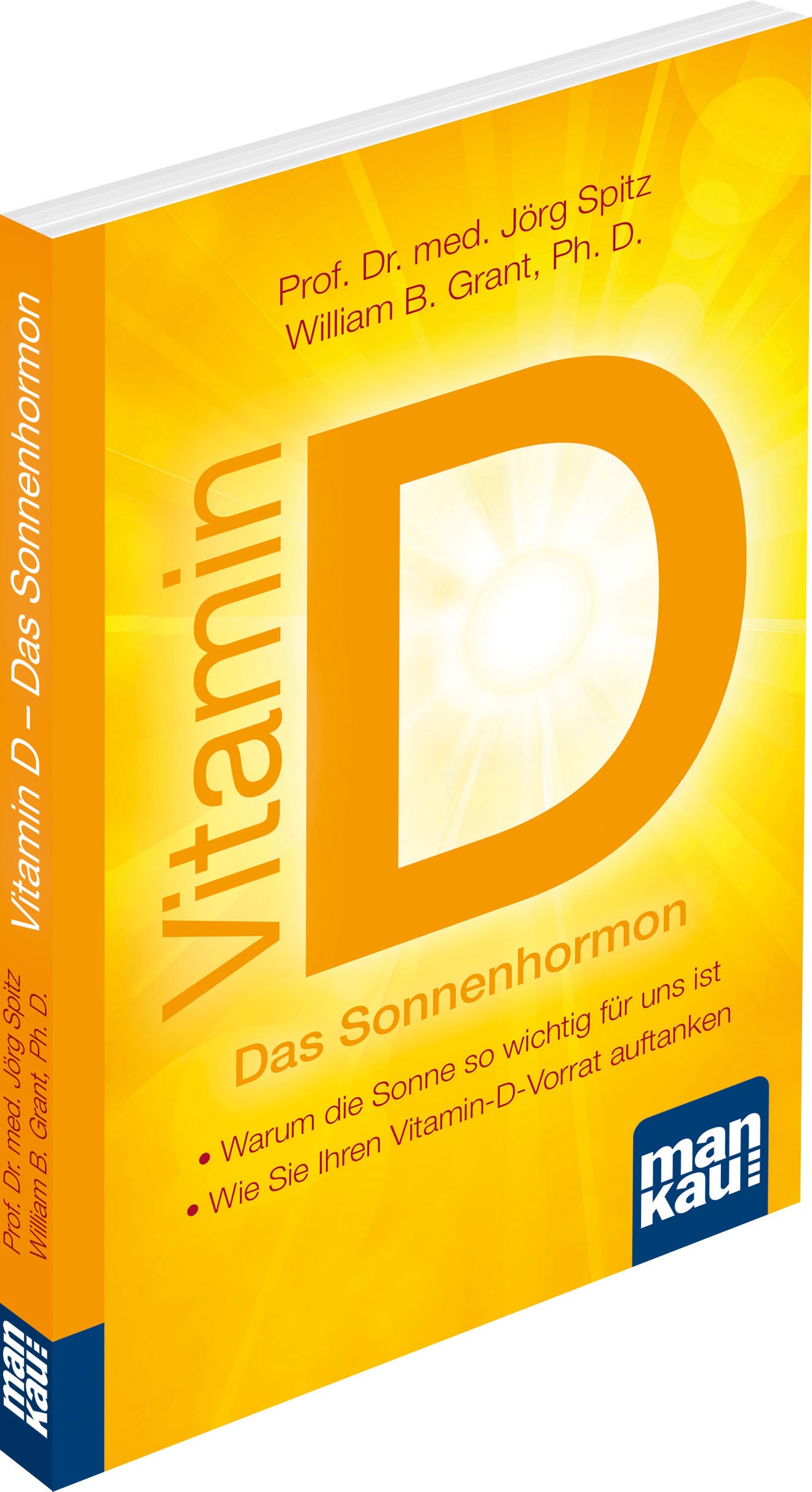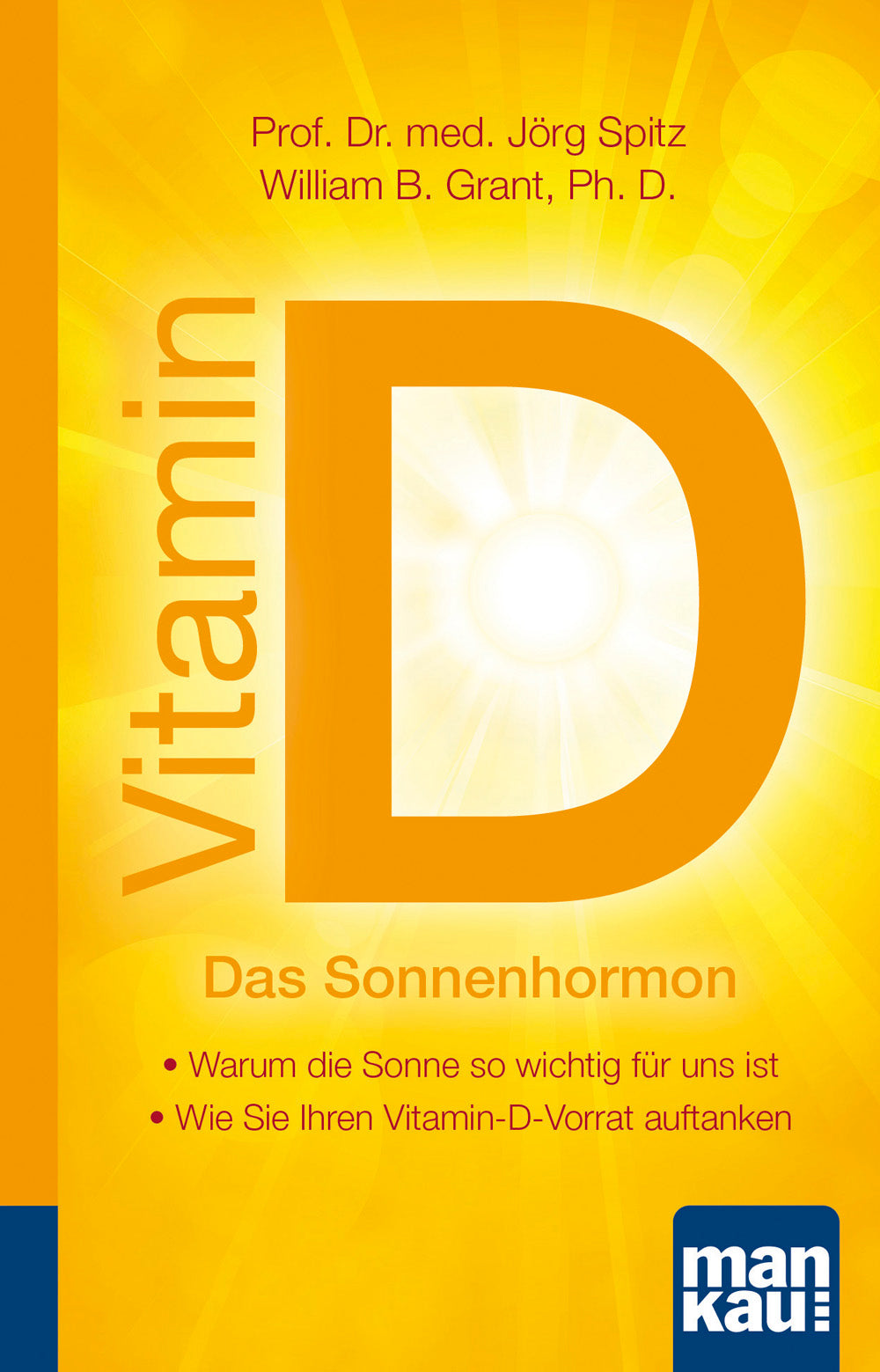"The book is well designed for people who want to get an initial overview; there is a lot of summarized information and further suggestions. Chapters 2 and 3 in particular show how important this topic is to the authors. They dispel some prejudices - including those of their colleagues - and encourage people to form their own opinions. This guidebook is worthwhile for anyone who wants to live a more health-conscious life, is interested in vitamin levels or who has been diagnosed with a vitamin D deficiency, e.g. because they suffer from a chronic illness. It gives a brief overview of the background, but above all it encourages you to review your own lifestyle and possibly make minor corrections."
Endometriosis Association Germany eV, Newsletter July 2018
"A small, fine book that clears up many prejudices and half-knowledge. It does not forget that Vit. D is only ONE aspect of a healthy life. If you are more interested in the effect on tumor diseases, we recommend 'the big brother' by the same authors: 'Cancer cells don't like the sun'. The basic information is the same in both books, however.
Worth reading!"
Taste of Love, March/April/May 2016
"Who could give you better advice than someone who warns you before the 'child falls into the well'? Professor Dr. med. Jörg Spitz (* 1943) is a preventive medicine specialist and thus someone like that. Together with the US scientist William B. Grant, Ph. D. (* 1942), he explains in his compact guide how good the sun really is for us. (...) In the appendix of the almost 100-page guide in a handy format, the authors describe that there have long been preparations that are supposed to protect us from a vitamin D deficiency, i.e. from a lack of the 'sun hormone'. (...) Perhaps the little Spitz/Grant book is a step out of the excuse trap when it comes to an afternoon in the sun. The sun shines for everyone. But it only does us good if we let it get to us. 'Vitamin D - The Sun Hormone' is a compact and credible plea for more light in our lives and the positive things that the sun can do for us. causes."For the full review...
Peter Kensok, Best ofwww.buecher-blog.net, Volume 7 (2015)
"Following his GU guide (...), the nuclear and nutritional medicine specialist Spitz restricts himself in the current compact guide to the essentials on the subject of vitamin D. Streamlined, without text overlaps, he offers basic knowledge about the 'sun hormone', its effect in the human body beyond the bones and the preventive power against a number of lifestyle diseases with a clear emphasis on the prevention of cancer. He wisely reports how, with adequate protection, one can get enough sun to supply vitamin D. The last chapter deals with the necessary health care (...)."
ekz.bibliotheksservice, Margret Becker, 05/2015
"(...) 'Vitamin D - the sun hormone' is compact, concise and handy. Spitz shows many ways of getting enough vitamin D, whether through effective 'sunbathing' or through dietary supplements. Fear of the sun is widespread today, this fear is sensitively addressed and ways are shown of how sunlight can be used in a way that is beneficial to health. (...) The price-performance ratio of this guide is very good and therefore 'Vitamin D - the sun hormone' should not be missing from any household, because vitamin D affects everyone and so does good sun exposure (...)."
www.das-gesundheitsportal.com, Bernd Herbig, April 2015
"With the compact guide 'Vitamin D - The Sun Hormone' by Prof. Dr. med. Jörg Spitz, (...), a topic has undoubtedly been addressed that has not only been wrongly neglected by doctors for a long time. (...) The book shows in a practical and easy-to-understand manner on 95 pages how important UV light and the sun hormone vitamin D are for us (...). The extensive information is perfectly rounded off by the 'Questionnaire on Individual Lifestyle' (...). The 'calculation formulas' for the amounts of artificially produced sun hormone required to compensate for a vitamin D deficiency are also very valuable for independent self-monitoring (...)."
Celiac disease in children, Birge Tramontin, February 2015









